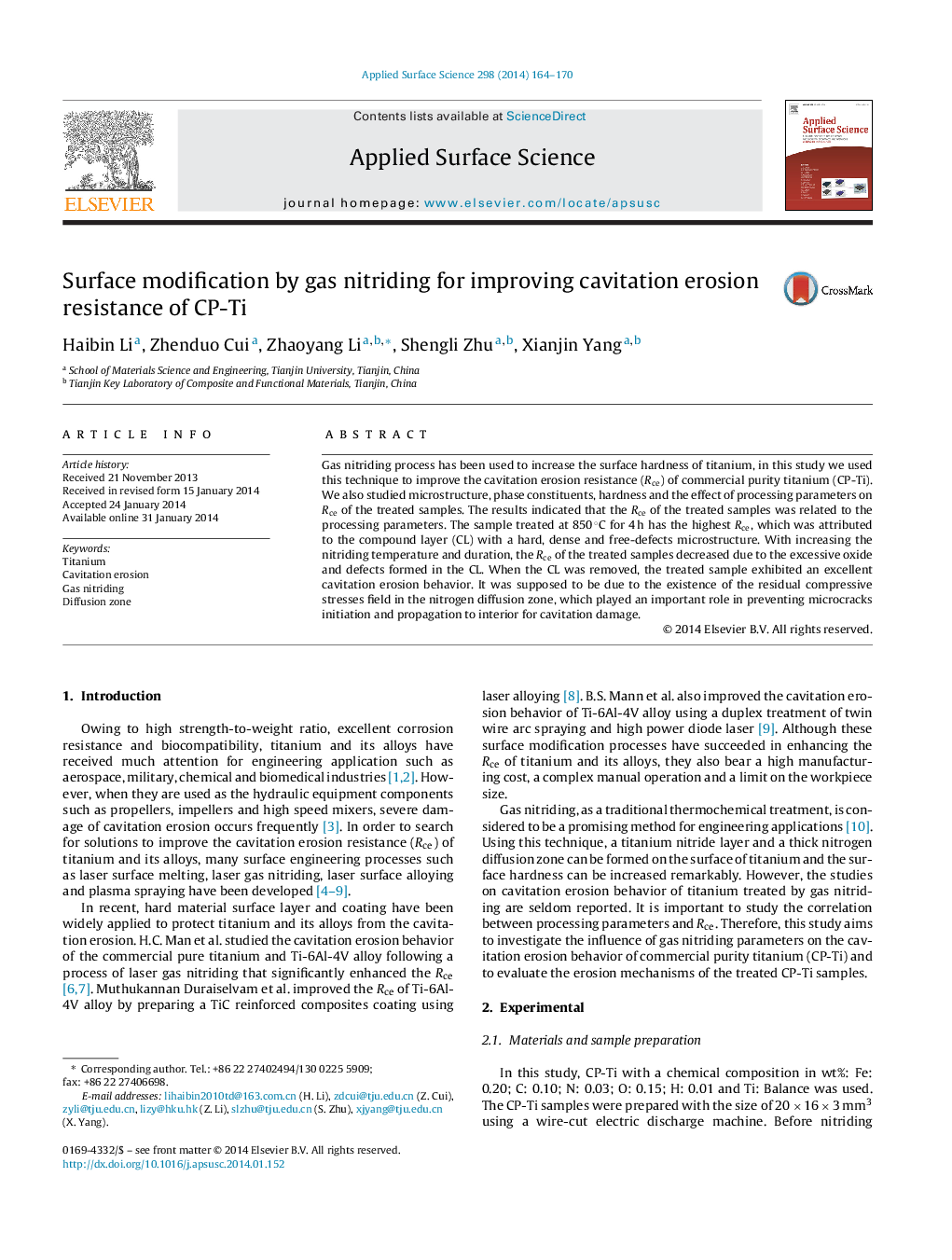| Article ID | Journal | Published Year | Pages | File Type |
|---|---|---|---|---|
| 5351007 | Applied Surface Science | 2014 | 7 Pages |
Abstract
Gas nitriding process has been used to increase the surface hardness of titanium, in this study we used this technique to improve the cavitation erosion resistance (Rce) of commercial purity titanium (CP-Ti). We also studied microstructure, phase constituents, hardness and the effect of processing parameters on Rce of the treated samples. The results indicated that the Rce of the treated samples was related to the processing parameters. The sample treated at 850 °C for 4 h has the highest Rce, which was attributed to the compound layer (CL) with a hard, dense and free-defects microstructure. With increasing the nitriding temperature and duration, the Rce of the treated samples decreased due to the excessive oxide and defects formed in the CL. When the CL was removed, the treated sample exhibited an excellent cavitation erosion behavior. It was supposed to be due to the existence of the residual compressive stresses field in the nitrogen diffusion zone, which played an important role in preventing microcracks initiation and propagation to interior for cavitation damage.
Related Topics
Physical Sciences and Engineering
Chemistry
Physical and Theoretical Chemistry
Authors
Haibin Li, Zhenduo Cui, Zhaoyang Li, Shengli Zhu, Xianjin Yang,
